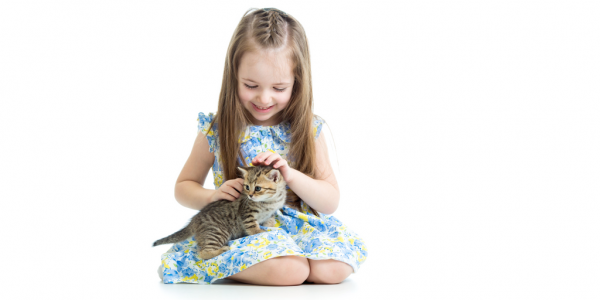The human-animal bond is an incredible interspecies connection. For generations, people have referred to dogs as ‘man’s best friend’. Yet, few people realize how true that statement really is. The bond that exists between pets and their human owners has far reaching benefits for people of all ages.
Psychological studies have found that there are a wide range of psychological, emotional, and even physical benefits of adopting an animal. Understanding the depths of this bond can help people make sense of the excitement and attachment they experience when they take the initial steps to adopt a new pet.
How Humans Express Their Affection
Humans tend to demonstrate their love and affection for their pets the same way they would for other humans. They invest time and money in caring for the animal, spending time with the animal, and being affectionate with them. According to sociologist David Blouin, 93 percent of dog owners and 77 percent of cat owners bring their animal to the vet each year for a check-up. 80 percent of dog owners and 67 percent of cat owners will also spend two hours or more each day with their animal. Nearly all of the surveyed pet owners said they spent at least some of their day with their pets. Humans also seem to focus around building their bonds with their animals through touch and physical affection. For many people, their natural desire to give physical affection can be offered through petting and cuddling.
The strong, innate desire of humans to take care of their animals, evidenced by their maintenance of their pet’s health through vet visits and regular care, also is what motivates companies like NuVet to develop products dedicated towards improving pets’ health. Unlike wild animals, pets are animals who have integrated into families, with many owners looking upon them as ‘children’. It is only natural that these owners seek products to supplement their pet’s nutrition the same way they do for the humans in their family.
Emotional Benefits of the Human-Animal Bond
When speaking of the benefits of animals, the emotional and psychological benefits are often the first that come to mind. For children, animals help to encourage a sense of responsibility. For secluded individuals, animals offer an intense emotional connection that is missing from other areas of their lives. Pets are wonderful because they allow humans to love them without fear of rejection. Studies have shown that the presence of pets helps children remain calm while awaiting a dental examination or completing a reading evaluation. This demonstrates the calming emotional presence the animals can have.
Physical Benefits of the Human-Animal Bond
What many people may not realize are the actual physical effects bonding with an animal can have on a human. For example, pet ownership has been associated with a lower heart rate, lower blood pressure, and general stress relief. Studies have also shown that pet ownership leads to improved health through encouraging physical activity. When dogs were introduced to elderly people suffering from mobility problems, the dogs were able to improve mobility in the humans by 28 percent, which was more than six times the improvement seen when humans were paired with other humans to walk with.
Cultivating The Human-Animal Bond
Cultivating the human-animal bond from the beginning is an important step to getting started on the right foot. Proper care for the animal, including tending to proper nutrition and making sure the animal receives regular health care are excellent first steps. It is equally important to spend quality time with the animal. This can be done by playing, walking, petting, cuddling, and training them when necessary to further develop the emotional connection. These steps together will go a long way towards beginning a lifelong bond and friendship.
Pets offer a valuable relationship to the humans in their lives. They provide social support, an outlet for affection, unconditional friendship, stress relief, and more. The human-animal bond continues to be a source of fascination for many in the psychological community. Continued studies will seek to understand this unique and profound relationship.


